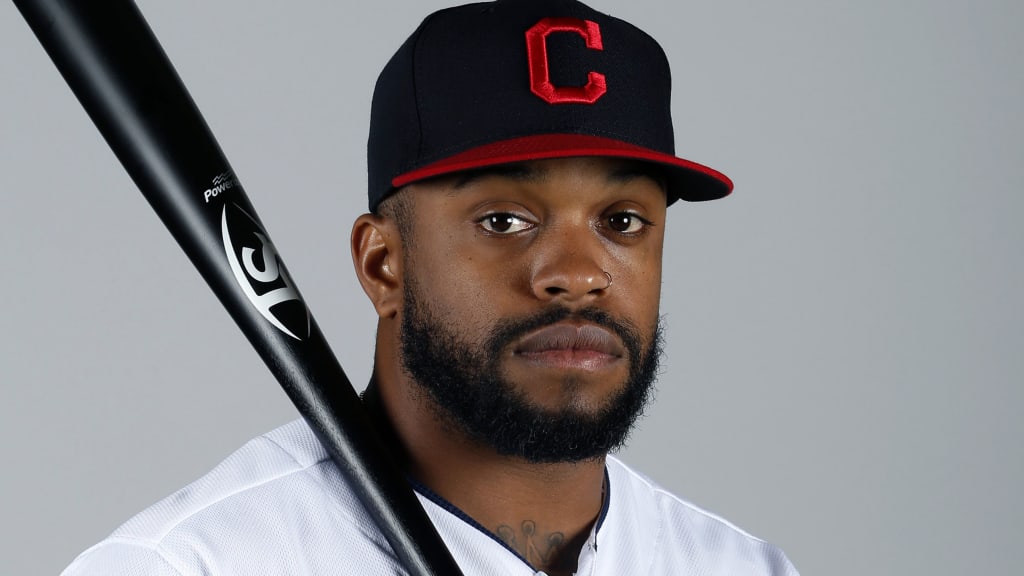
CLEVELAND -- Growing up, Delino DeShields said that his father, an African American who played 13 years in the big leagues, would always tell him one thing: “We’re born with one strike on us.” Now, DeShields is focused on doing whatever he can to help everyone start with a clean slate.
Over the last few days, protests across the country have erupted after video emerged of the killing of George Floyd while he was detained by members of the Minneapolis Police Department on May 25. The protests have encouraged those with and without a platform to do whatever they can to have their voices heard.
“I think if you have any kind of platform and you don’t say anything at all, then it’s a waste of time,” DeShields said on MLB Network Radio on Friday. “You know what I’m saying? We’re here for a reason. A lot of people who don’t have these platforms or don’t have voices, they need somebody to speak up for them. I feel like it’s my job and it should be all of our jobs to be able to speak for those who are in the dark and can’t be heard at this time.”
DeShields, Pirates first baseman Josh Bell, Orioles pitcher Mychal Givens, Orioles outfielder Dwight Smith Jr., Brewers outfielder Lorenzo Cain and Rangers pitcher Taylor Hearn joined Negro Leagues Baseball Museum president Bob Kendrick on MLB Network Radio to have a roundtable discussion about race and social justice. In the conversation, DeShields expressed how it’s taken him some time to find his voice within the game.
It began when Bruce Maxwell of the A’s decided to follow NFL quarterback Colin Kaepernick’s lead and take a knee during the national anthem before a 2017 game against the Rangers to raise awareness about police brutality and racial inequality. DeShields explained that Maxwell gave him a call beforehand and let him know that he was going to kneel and told the Rangers outfielder not to feel any pressure to follow his lead. DeShields decided against kneeling but said he immediately regretted it.
“Throughout the whole game, I kept thinking about how I felt -- like I was like selling out,” DeShields said. “It was a battle from that point on up to this point, him coming to Texas and all the boos that I heard. ... It [messed] me up for a little bit.
“I’m not selling out to nobody no more. This is our people. This is our struggle. Being athletes and having young African American kids that look up to us, we got to stand up and speak on what we know. Maybe one day it can help save somebody’s life.”
From that moment of regret came a strong voice. Because of the recent protests, DeShields took to Twitter to express some of his personal experiences of how racism and profiling have impacted his life.
“I’ve been on my social platforms,” DeShields said. “I’ve lost hundreds of followers just from voicing my own opinion and voicing how I feel about it and how angry I am, how upset I am. … People need to know the truth and see the life that we live on a daily basis. People need to know that. It takes all of us speaking out about our own experiences and what we went through growing up for people to really, genuinely see what it’s like to be us, especially outside of our uniform.”
DeShields and the rest of the panelists who took part in Friday’s discussion all agree in hoping that this is only the beginning of a lot of conversations to come. And if everyone continues to do their part in educating themselves and others, they all believe that change can happen.
“I think that’s one of the problems in America is there’s a lot of people who don’t see color,” DeShields said. “But I need you to, because when push comes to shove and we’re in a situation and it’s me, a black person, and you, a white person, I’m going to be treated differently than you are. Point blank. … It does start with our youth, and it starts in our school systems, too.
“I feel like my whole life, people haven’t seen me for who I am. I went to a private school and I’ve heard comments like, ‘You’re just a white boy trying to fit in a black body.’ I’m like what the [heck] is that supposed to mean? I’m black. … I need you to see me for me and see us for who we are and the things we endure on a daily basis, the fears that we have when we wake up in the morning, the fears that our parents have for us if they don’t hear from us for a couple days, that’s what I want to see changed.
“I want people to see us for who we are. If that came about, I feel like that’s a really big step in the right direction. Until then, I feel like things are going to remain the same.”




